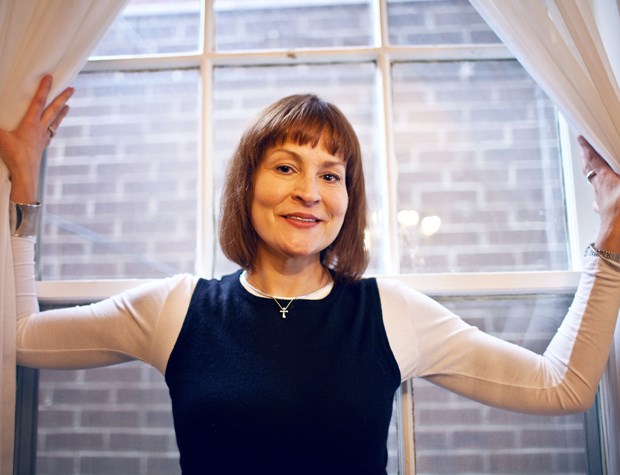Sponsored by Canadian National Institute for the Blind
Alida Miletic always knew there was a possibility she would someday develop vision loss. Her grandfather was diagnosed with glaucoma as a young adult and other family members had experienced vision problems, so there was a genetic risk.
But the former fashion designer never expected she would be diagnosed with aggressive glaucoma at 40.
“My grandfather lost his sight in his 20s, so at 40 I thought ‘I’m clear of that.’ So it was really tough,” Miletic says.
Prior to her diagnosis, Miletic’s focus was on her career in fashion. A graduate of Oakville’s Sheridan College, she ran her own clothing line for eight years before moving to Milan to work for the renowned fashion house DSquared2. Returning to Toronto, she joined the luxury menswear retailer Harry Rosen as a Versace and Giorgio Armani specialist.
Miletic first noticed something was wrong with her eyesight when she was driving at night and saw halos around street lamps and car headlights.
“I thought I was tired or hadn’t eaten properly,” she says.
Her glaucoma was diagnosed during a routine eye exam. The disease occurs when the optic nerve has been damaged, most often by elevated pressure in the eye. More than 250,000 Canadians have glaucoma and only half of them know they have it, according to CNIB.
It’s referred to as “the silent thief”, says Miletic, since there are typically no early warning signs and if left untreated, it can turn to blindness. The only real defence against the disease is regular eye exams.
Struck by the speed at which her glaucoma attacked her eyesight, Miletic refused to accept her diagnosis.
“I was in complete denial,” she says.
Miletic’s ophthalmologist first treated her with eye drops; eventually she required surgery to save some part of her sight.
She had to quit her career, which she says in many ways defined her. Friends and family didn’t know how to help; she was even unsure of how to help herself.
But during a followup appointment her ophthalmologist gave her a new prescription: “Go to CNIB,” he said. “They’ll help you out.”
When Miletic made the call to CNIB, a registered charity that delivers practical and emotional rehabilitation services to Canadians who are blind or partially sighted from coast to coast, she says her whole world changed.
“CNIB came over and interviewed me and said I could attend an intensive rehabilitation program,” she says. “They basically taught me how to be safe in my home.”
CNIB assisted her in adjusting many aspects of her life: how to cook safely, how to re-organize her home (she lives in the house she grew up in), how to navigate her neighbourhood and how to perform a range of everyday tasks.
“I didn’t trust myself to cook or use sharp knives,” Miletic says. “Your whole life changes. I mean, how do you brush your teeth?”
CNIB also introduced her to braille so Miletic, who loves to cook, could label items such as spices. She’s also learned to become extremely organized and to simplify everything around her.
“A clutter-free area is a safe area,” she says.
Now legally blind, Miletic describes her eyesight as like looking through a pinhole. She says the image is very foggy.
Dealing with the loss of vision successfully sometimes means planning ahead and calling on her support network.
After a few missteps, including returning home from the grocery store with a can of gravy instead of soup and getting lost in a large shopping mall, Miletic says she has learned to reach out to people and not only ask for help but tell them how they can help.
She now phones ahead and asks grocery store employees to walk her through the aisles; she also calls CNIB if she needs assistance finding her way around a shopping area.
“Anytime you have a situation you can ask CNIB to help you navigate that situation,” she says. “When there’s new construction in your neighbourhood they’ll help you navigate that.”
Never computer literate when she could see, Miletic has learned computer skills to gain greater independence.
“I can look up menus, for example, and know what I’m going to order without needing assistance from everybody,” she says.
Today Miletic is a vision health spokesperson for CNIB and volunteers by helping other people adjust to the life-changing experience of losing their sight. She also has a new-found commitment to education. She is studying sociology at the University of Toronto and has already completed courses in Canadian history.
“I never thought I’d go to university,” Miletic says. “And I love it.”



